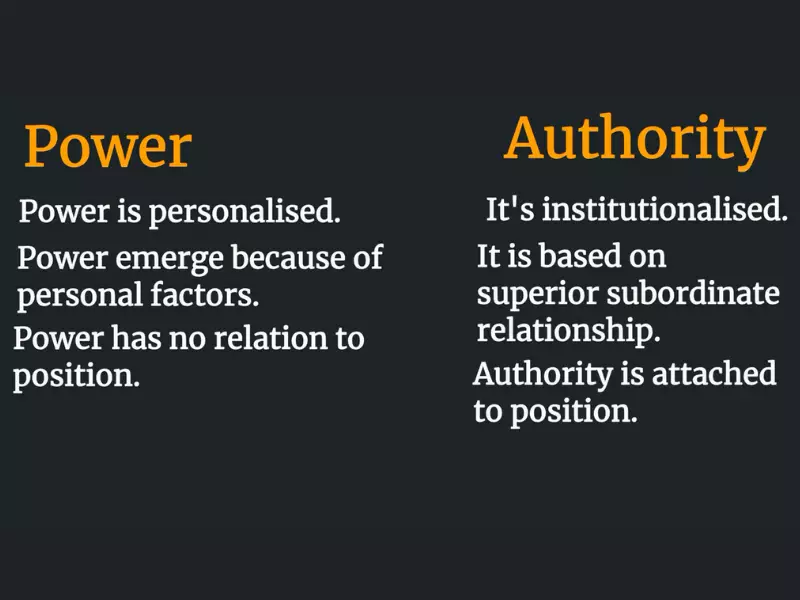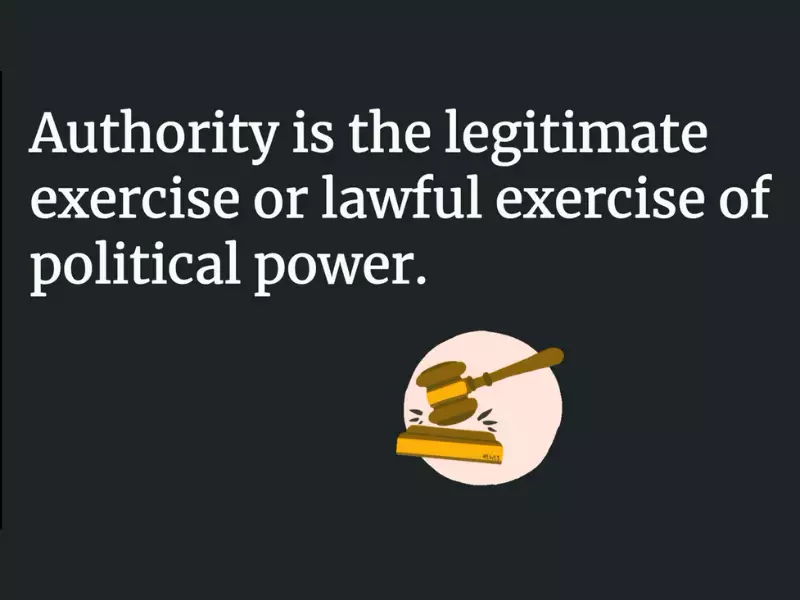The relationship between power and authority shapes the backbone of societal structures, governance, and interpersonal dynamics. Power, often perceived as the ability to influence or control the behavior of others, intersects intricately with authority, which is the recognized and legitimate right to command or govern. The interplay between these two concepts not only dictates the flow of control and influence within various societal levels but also underscores the mechanisms of leadership and management across different contexts.
At the core of the relation between power and authority lies the principle that power encompasses the capacity to effect change or exert influence, whereas authority is the formal or legitimate right to make decisions and command obedience. Authority, therefore, can be seen as a subset of power, characterized by societal recognition and legitimacy. This distinction highlights that while all authority involves power, not all power necessarily comes with authority.
The exploration of power and authority reveals how these elements function within societal constructs, affecting everything from political governance to organizational dynamics and familial relationships. Understanding the nuances of their relationship helps in deciphering the complexities of leadership, compliance, and resistance within groups. It also sheds light on the conditions under which power can be exercised legitimately and the implications of authority without power, or power without authority, on social cohesion and individual autonomy.

Power Explained
Types of Power
Power, a multifaceted concept, is intrinsic to the fabric of social interactions and organizational structures. It exists in various forms, each with its unique characteristics and impacts on society. The five primary types of power are:
- Coercive Power: This form of power is based on the ability to inflict punishment or enforce penalties. It relies on fear and the anticipation of negative consequences.
- Reward Power: Conversely, reward power stems from the capacity to distribute rewards. It operates on the principle of positive reinforcement.
- Legitimate Power: Often tied to a specific role or position, legitimate power is recognized as authority that is accepted by others within an organization or society.
- Expert Power: This type of power arises from an individual’s expertise, skills, or knowledge that others depend on or value.
- Referent Power: Stemming from personal traits, referent power is the influence one has due to the respect, admiration, or likability they command from others.
Sources of Power
The sources of power are as varied as its types. They can be internal, such as personal skills and attributes, or external, such as societal norms and structures. Key sources include:
- Personal Attributes: Charisma, intelligence, and emotional intelligence can significantly enhance an individual’s power.
- Social Networks: Relationships and connections provide access to resources, information, and support, amplifying one’s power.
- Resources: Control over resources (financial, informational, technological) is a traditional source of power.
- Position: Occupational or societal roles often come with built-in power.
Power Dynamics in Society
Power dynamics are the shifting and complex interactions of power within society. They influence how decisions are made, who gets to make them, and how resources are distributed. Understanding these dynamics is crucial for analyzing social structures, addressing inequalities, and fostering effective leadership.
Authority Unveiled
Types of Authority
Authority is the legitimate power that is recognized and accepted by others. Max Weber, a prominent sociologist, identified three types of authority:
- Traditional Authority: Based on customs, tradition, or accepted practice.
- Charismatic Authority: Stemming from an individual’s charm and appeal.
- Legal-Rational Authority: Founded on legal, formal, or bureaucratic norms and rules.
Legitimacy of Authority
The legitimacy of authority is what distinguishes it from mere power. It is the recognized right to make decisions and command obedience. Factors contributing to legitimacy include:
- Social Contract: The implicit agreement between the governed and the governing.
- Legal Frameworks: Laws and regulations that outline the bounds of authority.
- Cultural Acceptance: Societal norms and values that support the exercise of authority.
Authority in Various Contexts
Authority manifests differently across various contexts, from families to governments and corporations. In each setting, the basis and acceptance of authority may vary, reflecting the diverse nature of social constructs.
Power vs. Authority
Key Differences
While often used interchangeably, power and authority are distinct concepts. Power is the ability to influence or control behavior, whereas authority is the recognized and legitimized right to exercise power. Understanding the differences is critical for effective leadership and governance.
Examples in Real Life
Real-life examples abound that illustrate the nuances between power and authority. For instance, a police officer has the authority (legal-rational authority) to enforce laws, whereas a community leader may have power through respect and influence (referent power) without formal authority.
Intersection and Overlap
Despite their differences, power and authority often intersect and overlap. Authority can enhance power by providing it with legitimacy, while power can lead to authority when recognized and institutionalized by others.
Theoretical Perspectives
Sociological Theories
Sociological theories offer insights into the nature of power and authority within society. They explore how power dynamics shape social relations, institutions, and change. Key theorists like Max Weber and Michel Foucault have contributed significantly to our understanding of these concepts.
Political Science Views
In political science, power and authority are central to the study of governance, policy-making, and the state. This discipline examines how authority is established, maintained, and challenged within political systems.
Psychological Insights
Psychology contributes to the understanding of power and authority by exploring how they affect individual behavior, group dynamics, and interpersonal relationships. It delves into the psychological underpinnings of leadership, influence, and compliance.

Impact on Society
Power and Authority in Governance
Governance structures worldwide are underpinned by the interplay between power and authority. These elements determine how decisions are made, who makes them, and how they are enforced. In democratic societies, authority is derived from the consent of the governed, emphasizing the role of legitimacy and accountability. However, the concentration of power can lead to challenges, such as corruption and abuse of authority, highlighting the need for checks and balances.
Influence on Social Structures
The distribution of power and authority significantly impacts social structures, influencing everything from family dynamics to workplace hierarchies. Societies with a more equitable distribution tend to exhibit higher levels of social cohesion and trust, whereas those with stark power imbalances often face social unrest and inequality. This balance plays a crucial role in shaping societal norms, values, and expectations.
Challenges and Controversies
Contemporary challenges related to power and authority include:
- Privacy vs. Surveillance: The digital age has amplified concerns over how authority figures use their power to monitor and control populations.
- Social Inequality: The unequal distribution of power contributes to persistent social and economic disparities.
- Authority Misuse: Instances of authority being exercised without legitimacy or ethical consideration, leading to public distrust.
Case Studies
Historical Examples
- The Roman Republic offers insights into the evolution of governance systems, showcasing how the distribution of power and authority can maintain stability or lead to decline.
- The French Revolution exemplifies the consequences of power imbalances and the demand for more democratic forms of authority.
Modern-day Scenarios
- The Arab Spring illustrates the power of collective action against established authority, driven by demands for justice, democracy, and human rights.
- Corporate Governance Failures, such as Enron, highlight the importance of ethical leadership and accountability in managing power and authority within organizations.
Lessons Learned
Key lessons include the importance of:
- Transparency in the exercise of power and authority.
- Participation of the governed in decision-making processes.
- Accountability mechanisms to prevent abuse and ensure responsible governance.
Managing Power and Authority
Ethical Considerations
Ethical management of power and authority necessitates a commitment to fairness, justice, and respect for human rights. Leaders and authority figures must prioritize the well-being of those they serve over personal or organizational gain, recognizing the profound impact their decisions have on individuals and communities.
Strategies for Balance
Achieving a balance between power and authority involves:
- Empowering Participation: Encouraging inclusive decision-making processes.
- Implementing Checks and Balances: Establishing systems to monitor and balance the exercise of power.
- Fostering Accountability: Holding individuals and institutions responsible for their actions.
Role of Accountability
Accountability is pivotal in managing power and authority effectively. It ensures that decisions are made in the best interest of the public and that there are consequences for misuse or abuse. This can be achieved through various means, including:
- Regulatory Oversight: Ensuring that laws and regulations are followed.
- Public Scrutiny: Leveraging media and public opinion to keep authority figures in check.
- Judicial Review: Allowing courts to oversee and potentially overturn decisions that misuse power.
FAQs
What is the difference between power and authority?
Power is the ability to influence or control the actions of others, while authority is the legitimate right to exercise power. Authority is granted through social or organizational structures and is recognized by the society or group it governs, making it a specific form of power that is accepted and expected by those under its influence.
How is authority established?
Authority is established through a combination of social norms, legal systems, and organizational rules. It often stems from a position within a hierarchy, such as a government, a corporation, or any structured group, where specific roles are recognized as having the right to make decisions and command obedience.
Can someone have power without authority?
Yes, an individual can have power without authority. This occurs when someone has the ability to influence others or events without having a formal or recognized right to do so. Such power can arise from various sources, including personal charisma, expertise, or the control of resources, and operates outside the established structures of legitimate authority.
What role does legitimacy play in authority?
Legitimacy is crucial for authority, as it is the foundation upon which the recognized right to govern and command obedience rests. Without legitimacy, authority lacks the moral and social support needed to be effective, leading to challenges in enforcement and compliance. Legitimacy ensures that authority is accepted and respected by those it governs.
Conclusion
The intricate dance between power and authority defines much of human interaction, from the halls of government to the dynamics of family life. Recognizing the nuanced distinctions and interrelations between these two concepts is essential for understanding the mechanisms of control, leadership, and influence that permeate our societies. It highlights the importance of legitimacy in authority and the myriad ways power can manifest, informing discussions on governance, ethics, and social organization.
As we navigate the complexities of power and authority, it’s crucial to consider the implications of their interplay on justice, equality, and freedom. The balance between them affects not only the effectiveness of leadership and governance but also the empowerment of individuals and communities. By critically examining this relationship, we can strive towards structures that promote fair and equitable distribution of power and authority, fostering a more harmonious and just society.
